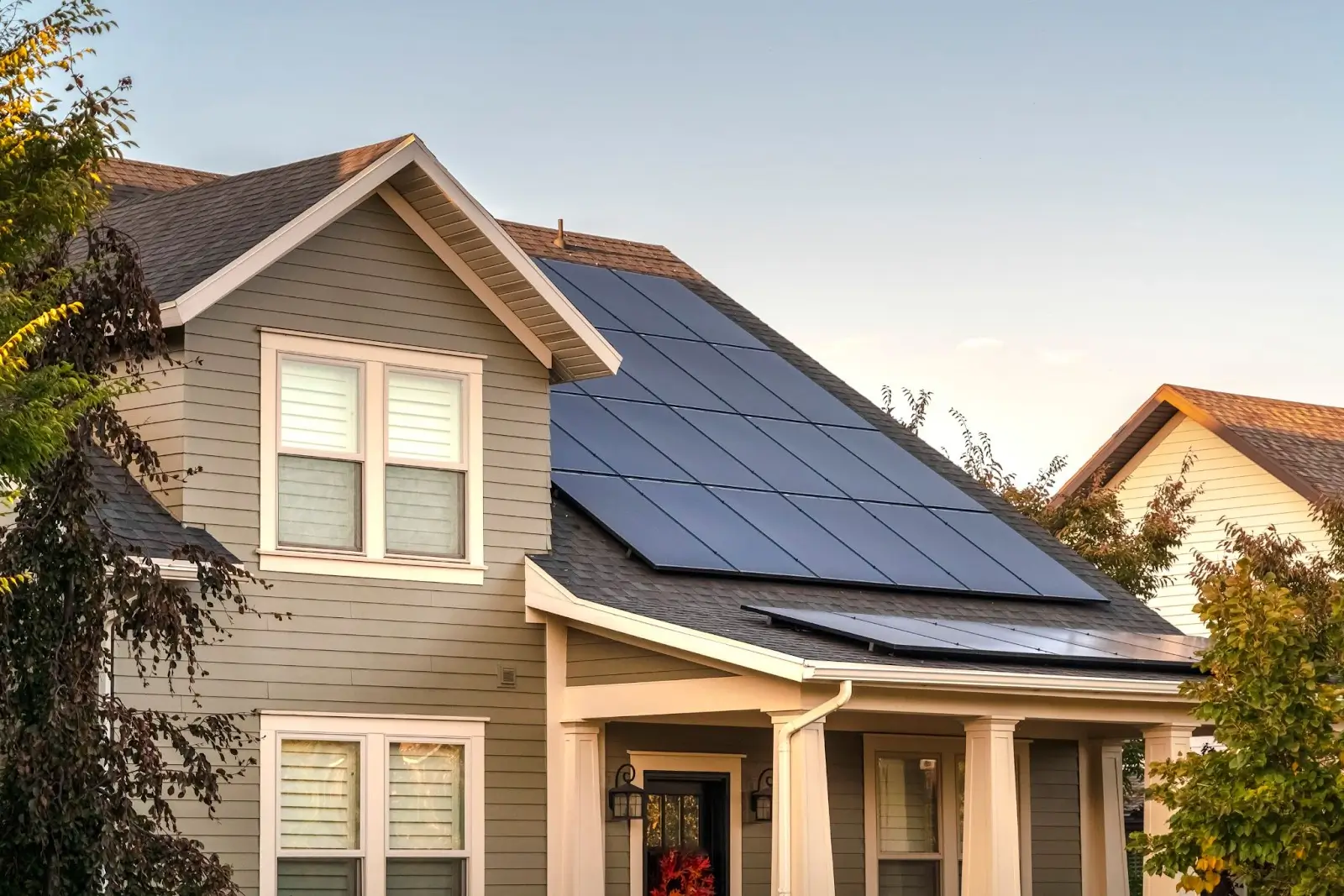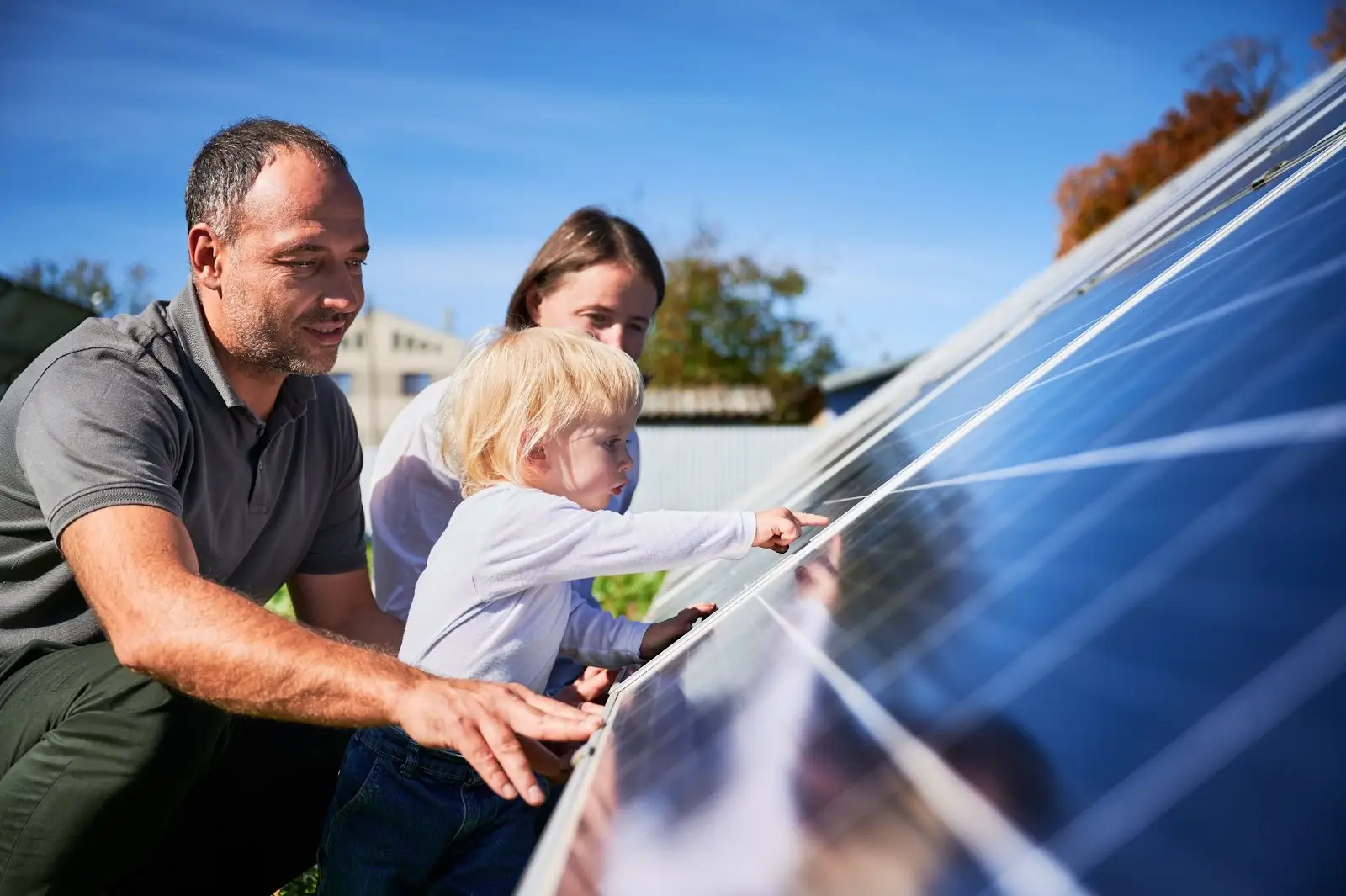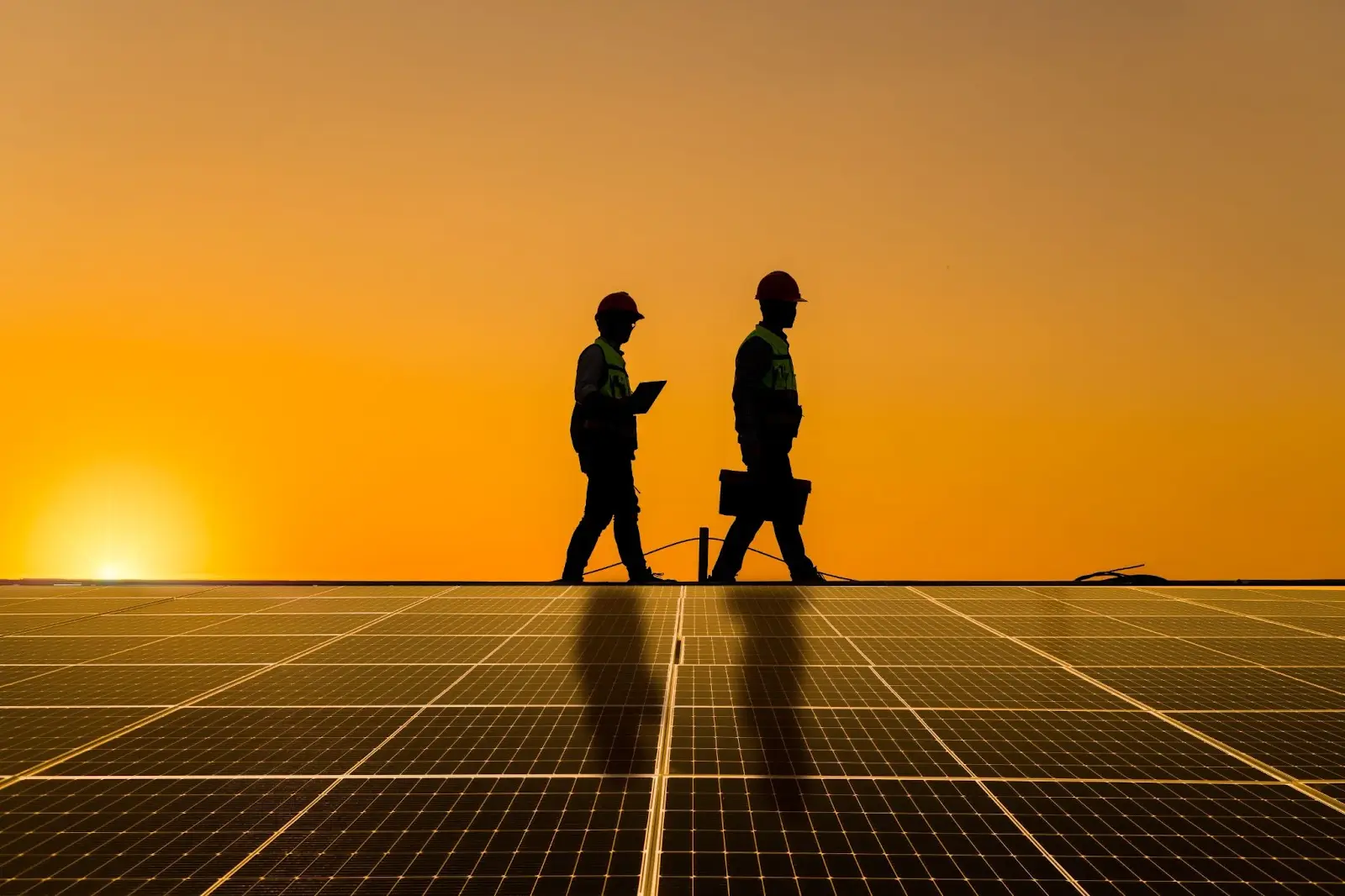Any industry or sector can benefit significantly from installing commercial solar panels.
Installing commercial solar panels can provide your business with the ideal energy solution, whether you’re trying to save money, lessen your carbon footprint, or secure your company’s energy source for the future.
What is commercial solar?
Commercial solar refers to solar energy intended for enterprises. Solar power is an excellent clean, renewable energy source and a highly successful energy-saving technology.
Commercial solar serves many clients, from governments and big businesses to schools or small businesses.
Several examples of companies and organizations that use commercial solar energy systems
Many different types of businesses can benefit from solar energy. Many companies in these industries choose solar to lower future energy costs and help the environment.
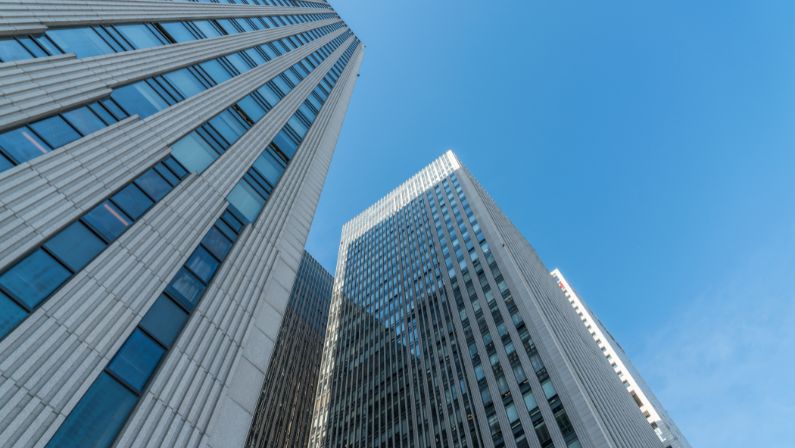
Commercial office structures
Vineyards, farms, and ranches
Warehouses and factories
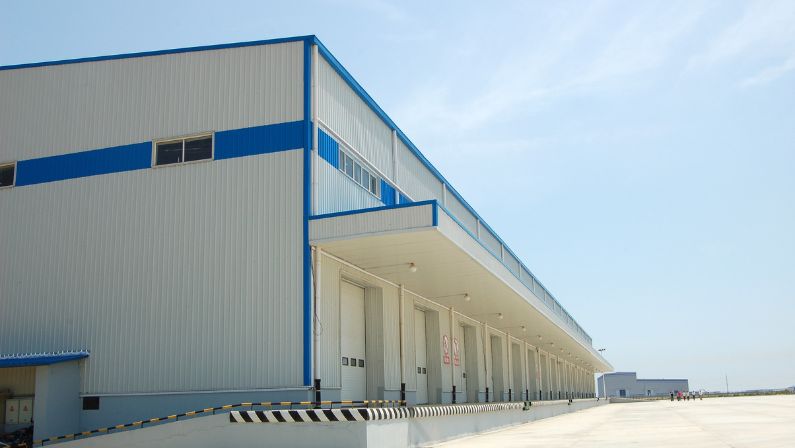
For warehouses and factories, solar panels are the ideal solution. They help balance the noticeably higher operating expenses for these structures and effectively utilize the considerable amount of accessible roof space, which would otherwise go mostly unused.
Clinics and hospitals
Hospitals and other healthcare facilities stand to gain a lot from solar energy systems. It helps lower overall costs and enhances patient care.
Schools and childcare facilities
According to a study, schools and daycare facilities frequently use a lot of energy, which affects how much energy communities use. Therefore, they can highly benefit from using solar power.
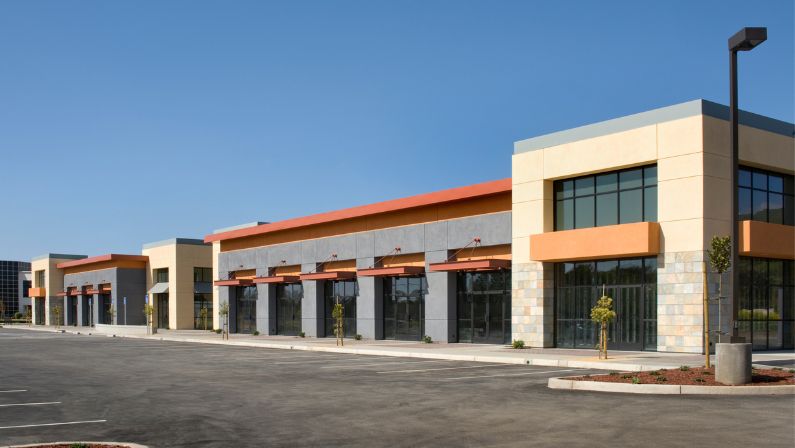
Retail stores and shopping centers
Parking lots, parking garages, etc.
Where can commercial solar systems be installed?
Commercial solar systems are installed in various structures and settings due to the number of organizations that can employ them and the variety of locations from which they operate.
- The canopies and rooftops of commercial buildings.
- On a flat roof or other flat surfaces, ballasted.
- Sheds and barns.
- Patio coverings, gazebos, and pergolas.
- Parking covers and garages.
- Mounting poles.
- Ponds and manufactured lakes are examples of water features.
How long does it take to install commercial solar panels?
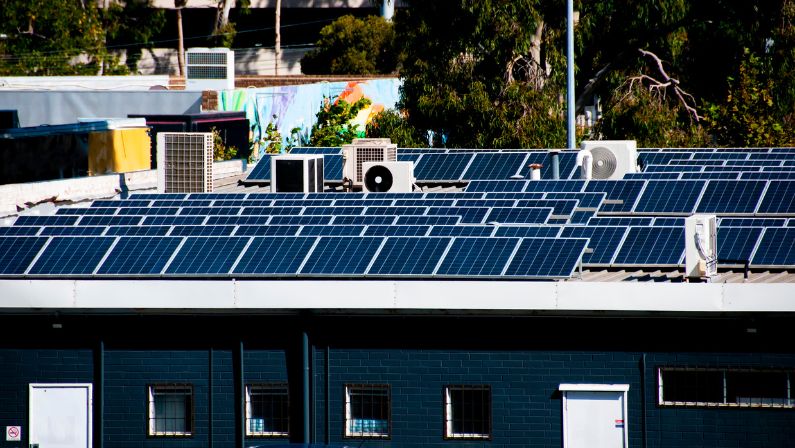
What advantages can commercial solar panels offer?
Energy security
You may lessen your reliance on fossil fuels by switching to solar energy. This also protects you from rising energy costs.
Enhanced efficiency
Lower utility costs
Investing in solar energy is a wise business decision
Solar energy is a wise investment that offers substantial financial advantages. Businesses that put solar panels on their roofs frequently see a 30% increase in profits.
Reduce electricity costs
Moving to renewable energy sources is among the best strategies to reduce your electricity costs. Not only does it lower energy prices, but it also gives more freedom from fluctuating energy markets.
Less carbon emission
Investments with rapid returns
The short time it takes for solar panels to produce enough electricity to balance off the energy they use makes it an intelligent investment. And fortunately, you can get a significant return on your investment from commercial solar panels.
Less regular maintenance
How much does the average commercial solar panel cost?
The typical price of commercial solar panels depends on how many kilowatts you require to meet your energy needs. In the US, for 2021, the average cost of commercial solar panels is $251,162, with typical expenses ranging from $50,211 to $502,113.
Visit Construct Sun in Reno, Nevada, for a consultation and estimate regarding the cost of your commercial solar panels.

Factors affecting the cost of solar for your business
Commercial solar panel costs can be affected by several variables, but some of the more crucial ones are system size, mounting design, and others. Here is an enumeration:
The system's size
Equipment type
Rooftop Solar
This type of solar installation is the most popular because businesses may attach the structure to unused roof space. Roof mount systems come in several distinct varieties, including:
- Typical roof mount: This kind of installation uses a rail-based mounting approach that is fully anchored. It is perfect for pitched roofs and other unusually shaped roofs because of its secure attachment.
- Mount for a single-tilt flat roof: Large, flat roofs, such as those in a factory or warehouse, benefit the most from this installation style.
- Mount for a dual-tilt flat roof: Due to the efficient use of space, this design is perfect for buildings with flat, constrained roofs.
Carport Solar
If your business doesn’t have room for rooftop solar, you can still put it in a sizable parking lot on the property. There are various kinds of solar carports, including:
- Long canopy: This installation uses a single continuous canopy to cover the inside driving lane, two parallel parking rows, and other areas.
- Canopy with two tilts: One parking row is covered by a dual-tilt system with two panels tilting down toward the center.
- Canopy over the garage: A canopy installed atop your parking garage would be the best option if your company has one. It adjusts to diverse structural situations while maintaining the best course for maximum performance.
Basic solutions
How long do commercial solar panels last?
According to industry standards, the typical solar panel lifespan is 25 to 30 years. In addition, most reliable manufacturers provide 25-year or more extended production warranties.
Construct Sun offers a 30-year bumper-to-bumper warranty in addition to the typical manufacturer equipment warranties.
Commercial solar panels are a worthy investment
Commercial solar is worth the cost, the time commitment, and the work required to install panels on your company’s roof to lessen dependency on the utility.
However, with Construct Sun, it’s a much easier process. You can concentrate on running your business; because we’re on top of every stage of installing your commercial solar panels.


